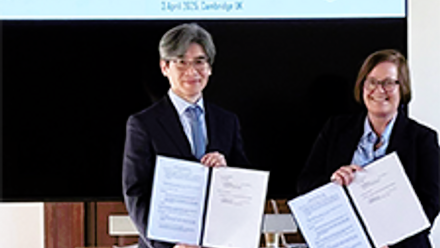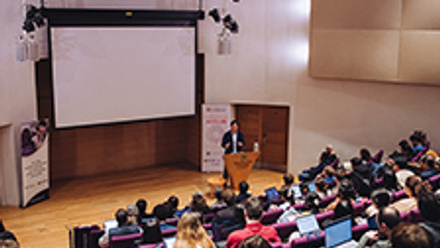Guest Blog | Eisai Manufacturing Ltd | Getting fit for the future: a 2030 Skills Strategy for Life Sciences
Alex Felthouse, Managing Director of Eisai Manufacturing Ltd and Chair of the Science Industry Partnership Futures Group
The Fourth Industrial Revolution, which is characterised by a fusion of technologies and a blurring of the lines between the physical, digital, and biological spheres, is ushering in transformation across the life science industries.
Leaders in business throughout the sector recognise that getting to grips with the skills needed to realise such transformation is now a first order priority.
The Life Science Sector Deal has a clear ambition to capitalise on the enormous opportunities for growth the sector presents and to transform the prevention, diagnosis and treatment of chronic diseases by 2030. Skills will underpin this, and the Deal has recommended “the development of a skills action plan based on a gap analysis of key skills for sciences”.
The Science Industry Partnership (SIP) in collaboration with BIA, ABPI and with the support of the Office for Life Sciences (OLS) has taken up this gauntlet. We know there is a skills gap, and we need to prepare now for what the future holds. The Organisation for Economic Cooperation and Development (OECD) has summed up this challenge, stating “technology is racing ahead of the skills people have”.
This Life Sciences 2030 Skills Strategy will build a clear evidence base of the status of life science skills and future scenarios to 2030, focusing on medicines manufacturing, as well as emerging technologies, such as Artificial Intelligence (AI), to identify what is needed in addition to current available training provision.
The Strategy is taking shape under the leadership of the SIP Futures Group, which I am Chairing. We have now had our first meeting, with representation from members including Pfizer, ABPI, OLS, Eisai, Kymab, Cogent Skills, Vertex, Covance, UCB and Steer, the expert consultants appointed to undertake the comprehensive analysis work required.
The Futures Group has now endorsed four key research areas:
- Assessment and identification of the skills demand for research and development activities;
- Analysis of the skills requirements for medicines manufacturing, including established and complex medicines;
- Undertaking a detailed gap analysis of the delivery of vocational skills, including availability of apprenticeship provision against the required demand; and
- A study of the post-Brexit UK workforce skills capacity and needs, highlighting areas of shortage.
There will also be a cross cutting theme Global Operating Environment focusing on Asia and America to help us to look ahead and understand the international skills drivers.
In essence the skilled people required by the sector will need to come directly from education or from other related sectors. And structured, high quality training will be essential in achieving this goal. The onus is on the life sciences industry to attract people into the sector, recognising the workforce is far more mobile than in previous years, and only by working together will we achieve this goal.
We need a digital and data savvy workforce, we need to ensure re-skilling is standard practice and we require fit-for-purpose and blended vocational and academic pathways and provision. We also need to see many more apprenticeships in our sector – particularly as we now have a range of new employer-developed Standards from Level 2 through to Masters.
The newly published Bioinformatics Scientist Standard at Level 7 is a great example of a pioneering new approach to applied learning at the higher level.
Our Skills Strategy will also support us to develop a post-Brexit approach to skills to identify provision gaps that are resulting in the need to look outside the UK for the skills essential for growth. This approach needs to be responsive and based on employer demand, rather than the current and at times expedient shortage arrangements. Industry needs access to essential skills not always available in the UK; maintaining expertise and scientific knowledge in innovation and research will be key in the future.






